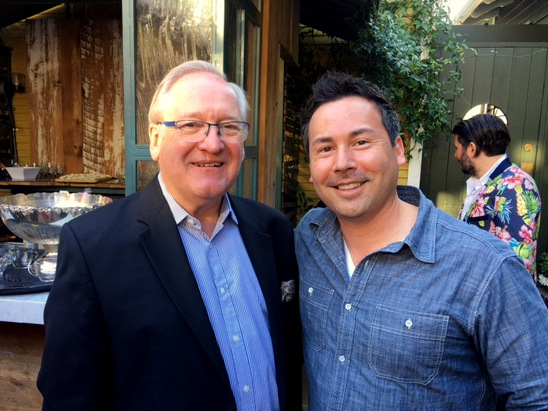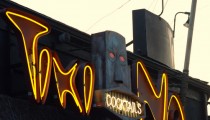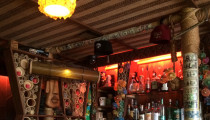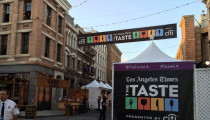Tiki No is a great tiki bar in North Hollywood…
10 Things We Learned at Beefeater Gin College
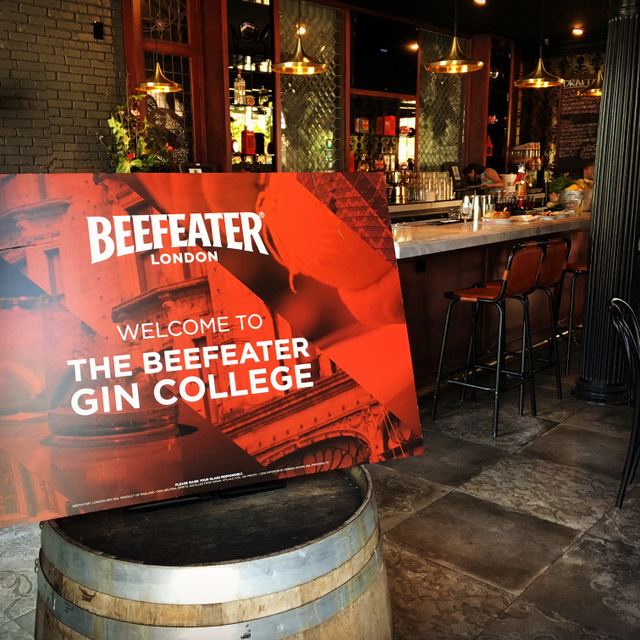
Recently, Rob and I drove down to San Diego and went back to college – Beefeater Gin College, that is! We sat through tests, lectures and tastings at the lovely Park & Rec, but unlike “regular” college, we were rewarded with an array of delicious cocktails at the end of the day. Like good students, we took a few pages of notes while we learned about everything that goes into making gin – Beefeater, in particular, but not limited to that brand – and how to enjoy it.
1. Only 5 people work at the London distillery, producing all Beefeater gin. One bookkeeper, one master distiller and three still-men (the men that run and monitor the stills). Beefeater produces 2.6 million cases of gin a year.

2. Desmond Payne (above right. Sebastian Hamilton-Mudge, Beefeater’s Global Brand Ambassador is on the left), Beefeater’s master distiller, is the world’s most experienced gin distiller. He has been a master distiller for 45 years.
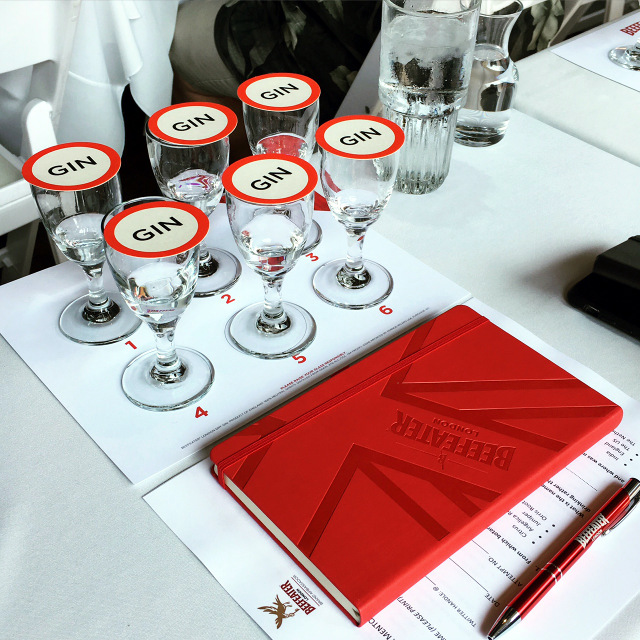
3. Gin is a neutral spirit flavored with or redistilled with botanicals, with juniper as the dominant botanical. There are three types of gin: Gin, Distilled Gin and London Dry Gin. Gin is a neutral spirit that is flavored with botanical extracts, while Distilled Gin is a neutral spirit that is redistilled in the presence of botanicals. London Dry Gin is a gin style where all flavors are introduced through redistillation.
4. Despite the name, London Dry Gin can be made anywhere in the world. Beefeater, however, is made in London and has been since 1863.
5. Beefeater is made with nine botanicals – juniper, lemon peel, Seville orange peel, orris root, coriander seed, angelica root, angelica seed, almond and licorice.
6. All juniper is foraged, not cultivated. Payne tests over 200 samples of juniper a year to identify the right one to use in Beefeater because every batch of juniper will taste different. Beefeater uses 40-50 tons of juniper each year.
7. The Beefeater botanicals are steeped in neutral spirit for 24 hours before distillation for maximum flavor.
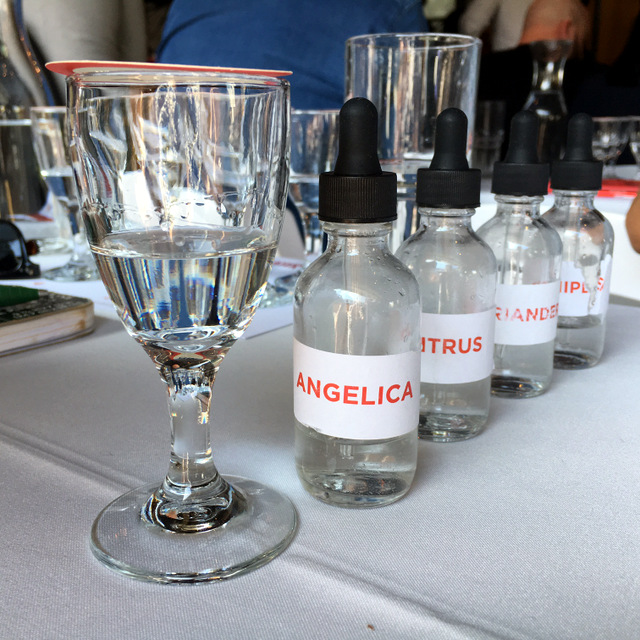
8. Gin is easy to make, but it is difficult to make it taste good. We were allowed to make our own test gins using some bottled botanicals. Let’s just say that we dubbed ours “near gin” because it didn’t quite make the cut.
9. The United States is the world’s biggest market for gin. Spain is second.
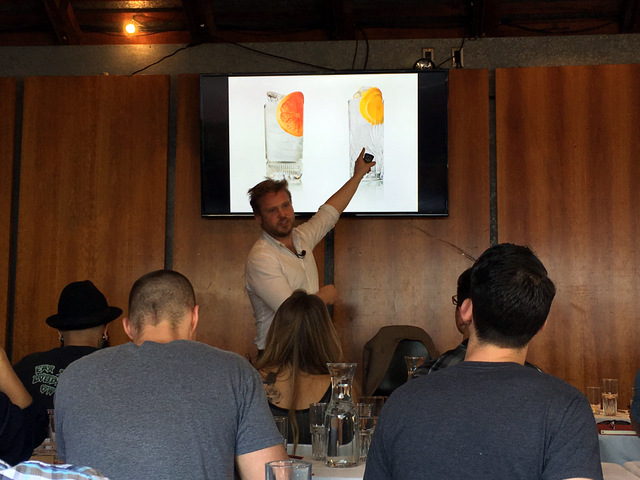
10. Gin and tonics do work well with lime, but they’re even better when they’re garnished with an ingredient that is used in the gin itself. Typically, this means citrus. Beefeater works well with lemon and orange slices. Hendricks, for contrast, works well with cucumber.
